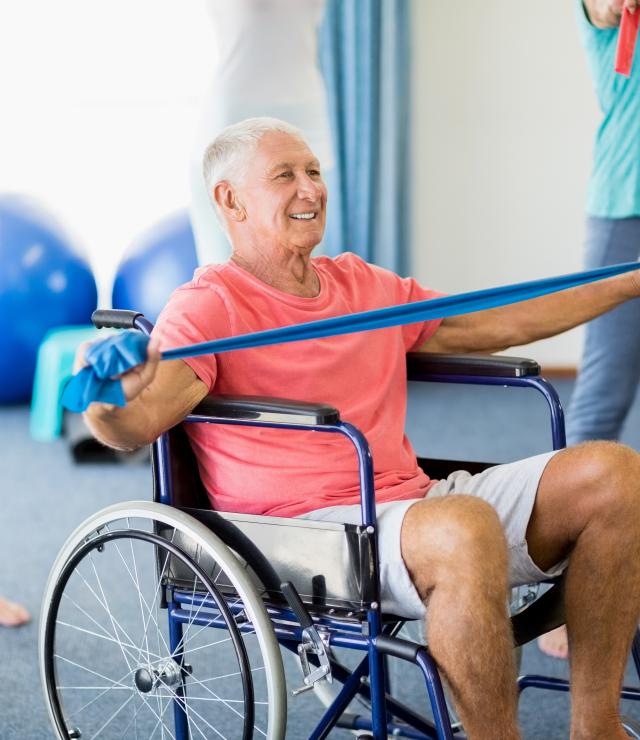Not Finding What You're Looking For?
Translational Musculoskeletal Research (TMSKR) Laboratory
Our research is mainly 4 main categories: knee osteoarthritis, adaptive sports, physical activity related studies and outcomes of musculoskeletal treatments.
Lab

Assessment of a Microprocessor Ankle for Low Mobility Individuals with Amputation: Phase I
This study is being done to conduct a preliminary investigation into a new prosthetic microprocessor controlled ankle, called the Damping, Stiffness, and Repositioning (DSR) ankle. Participants will visit the Shirley Ryan AbilityLab 10-16 times over 9 weeks, each visit lasting approximately 3 hours, to perform a series of walking and mobility tests with both their own prosthetic ankle and the DSR ankle.
Research Project
CROR Project Aims to Help Patients and their Care Partners Understand Rehabilitation Assessment Measures
CROR is home to the Rehabilitation Measures Database (RMD), an online collection of more than 500 measurement tools that cover everything from cognitive functioning to walking.
In the News
Knowledge Translation: Exercise and Activity for Symptom Management (KTEAM)
We research implementation science methodology to study best ways to translate findings of exercise research studies into the real-world clinical & community.
Lab

COMPLETE: Assessment and Monitoring of Neuromotor Function through Advanced Dynamic Pose Estimation
We plan to use videos of people with Parkinson's disease (PD) doing different things to develop sophisticated computer programs that can detect specific movement patterns that are only seen in people with PD.
Research Project
Neuromuscular Control Lab
Our lab is focused on the mechanisms underlying the multijoint control of movement and posture in able-bodied individuals and in individuals with neuromotor pathologies. Specifically, we are interested in understanding the relative contributions of intrinsic muscle properties, limb geometry and neural activation in the control of whole limb function.
Lab

Näder Lab: Assessment and Monitoring of Neuromotor Function through Advanced Dynamic Pose Estimation
We will use videos of people with Parkinson's disease (PD) doing different things to develop sophisticated computer programs that can detect specific movement patterns that are only seen in people with PD. We will then see how well our computer programs can diagnose early PD, compared with medical and clinical professionals.
Research Project

Assessing Feasibility, Efficacy, and Acceptability of Visual Feedback during Heart Rate Monitoring in Rehabilitation
We are interested in monitoring patients' heart rates during group and individual rehabilitation sessions that focus on improving endurance.
Research Project
Center for Smart Use of Technologies to Assess Real World Outcomes (C-STAR) Movement Database
The purpose of this study is to develop a database that contains de-identified movement and rehabilitation-related data collected through use of wearable sensors and video. This database will serve as a resource for clinicians and researchers interested in the investigation of movement or rehabilitation-related research ideas.
Research Project
Pediatric Muscle Physiology Lab
We study muscle stem cells in impaired musculoskeletal growth and muscle metabolism in children with cerebral palsy.
Lab
Cognitive Neuroscience Laboratory
We focus on executive function and social cognition, their representations in the brain, and ways to improve these functions in patients with brain damage.
Lab






